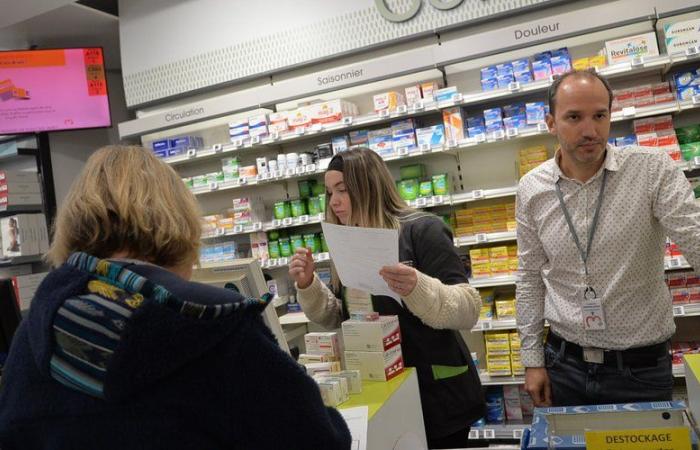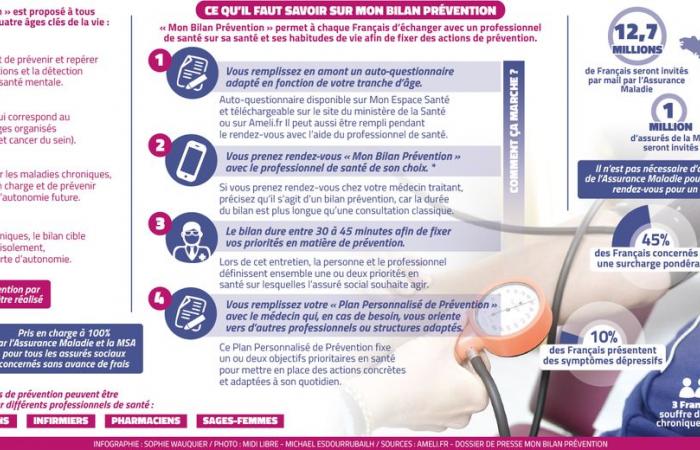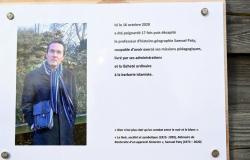From 18 to 75 years old, four slices of life scanned by a doctor, nurse, midwife or pharmacist, invited to question the French about their diet, sleep, physical activity, mental and sexual health… long promised, the “Prevention assessments”, likely to affect 21 million people, are being launched this month. Valérie Tchen Fo, head of the prevention sector at Hérault Health Insurance, welcomes the implementation of this new system.
Valérie Tchen Fo is responsible for the prevention sector at Hérault Health Insurance.
Prevention assessments for all have been announced for a long time, they are now offered to the French, finally?
Yes ! France is late. We are doing a lot of things on the ground, but it is not enough. Health insurance sends invitations and information, but the leverage of health professionals is important. Not only are they trained in all prevention actions, but they also have a voice which, we hope, will bear more fruit than our collective messages. I also hope that health professionals will take advantage of it.
The messages sent so far weren’t working?
No, we are still in the healing process. We focus a lot on cancer screenings, breast, colorectal and uterus, and we have far too low participation rates, particularly for colorectal. In Hérault, it is 24.82% participation. We have a lot of trouble convincing our policyholders, despite all our messages, by facilitating access to the kit, to get tested.
The national health insurance fund started from the fact that by mobilizing health professionals, and by mobilizing several of them, and not just the doctor, we can relay prevention messages, in a dedicated space, over a long period of time, over thirty to forty minutes. We want people to become actors in their health, supported by a professional.
#HealthPrevention | Complete your Prevention Assessment in 4 steps! Talk to a healthcare professional and benefit from their advice to adapt your lifestyle habits to your health.
Go here for the first step: https://t.co/HfqIaMpszE ud83dudca1ud83dudcaa— Ministry of Health and Access to Care (@Sante_Gouv) https://twitter.com/Sante_Gouv/status/1836306664984842455?ref_src=twsrc%5Etfw
There is no taboo in the subjects raised: it is also about addictions, sexual health, mental health, violence…
Yes, and the message is adapted according to age groups: for 18-25 year olds, it will be chronic diseases, addictions, sexual health, sleep, mental health, and screening for sexually transmitted infections.
At 18, we have less parental support, we enter working life or higher education, we have to take charge of ourselves, the 18-25 age group was not chosen at random. The 45-50 age group is a key period in relation to organized cancer screening. For 60-65 year olds, we target chronic illnesses. And for the oldest, those aged 70-75, in addition to chronic illnesses, there is the risk of isolation and dependence.
Health professionals will guide their discussions based on these findings.
Messages adapted to age groups
Very concretely, how does it work, do people receive a letter from health insurance, or do they have to directly contact a health professional?
Both. Since January, we have communicated with the health professionals concerned, they can have support in conducting interviews, e-learning training… there are many tools. From January, health professionals began the assessments. These are mainly doctors, who can spontaneously offer it to their patients.
Furthermore, with the launch of the national prevention campaign this month, more and more people are being informed.
Midi Libre – SOPHIE WAUQUIER
Finally, since the beginning of the month, health insurance has been sending invitations, by age group. We start with the 70-75 year olds. The letter explains that it is a free consultation, without upfront costs, with the health professional of their choice, whether they know them or not. You can fill out, if you wish, a self-questionnaire before the appointment. It is available on ameli, or on their health space. There is no obligation, but it is from there that the health professional will identify the risk factors and discuss with the patient to put in place a personalized prevention plan on one or two priority subjects, sometimes with referral to other health professionals.
Do you direct where people are doing?
On the esante government website, health professionals can declare themselves as participants in the prevention assessment. But it is not obligatory. You can also ask a professional you know.
What did the experiment give in Hauts de France?
This was only in the 45-50 age group. Health professionals have given positive feedback.
“We want to reduce territorial inequalities in health”
We are not on the services offered by certain mutual insurance companies, and in the role of occupational medicine?
These benefits only affect certain categories of people. With these prevention assessments, we want to reduce territorial inequalities in health, that is to say, seek out people who are not responsible for their health, a vulnerable public. We know how difficult it is to sometimes find a treating doctor. If it’s complicated, there are nurses, midwives
Bringing people who are very far from it into the healthcare system…
Exactly. Doing your screenings, taking an interest in your health, means maintaining your health capital. During the assessment, preventive actions can already be carried out: a midwife, for example, can take a smear. The pharmacist may issue a colorectal cancer screening kit to a person who is not up to date.
There may be a direct act of prevention or screening, or a referral to another health professional.







